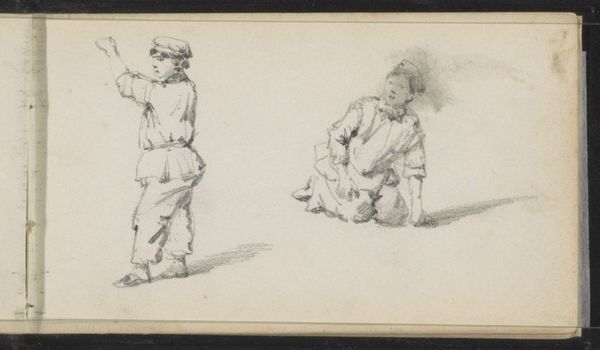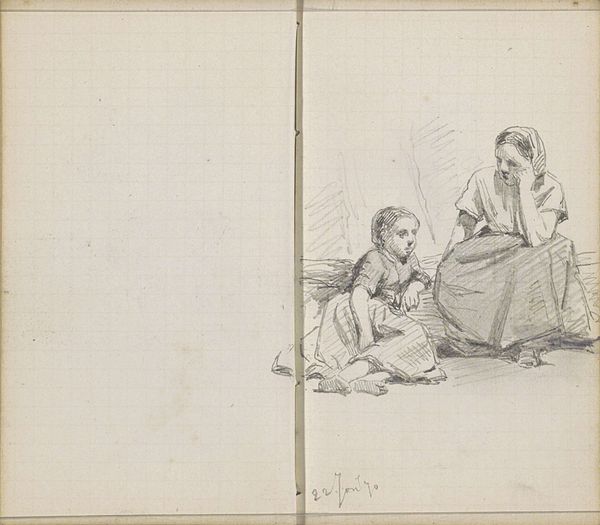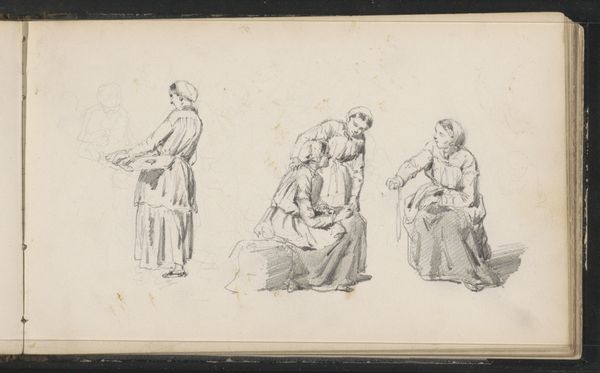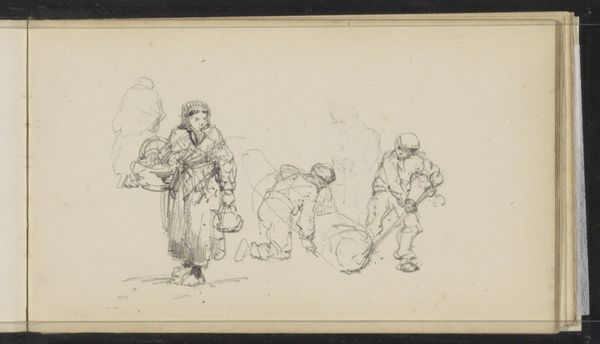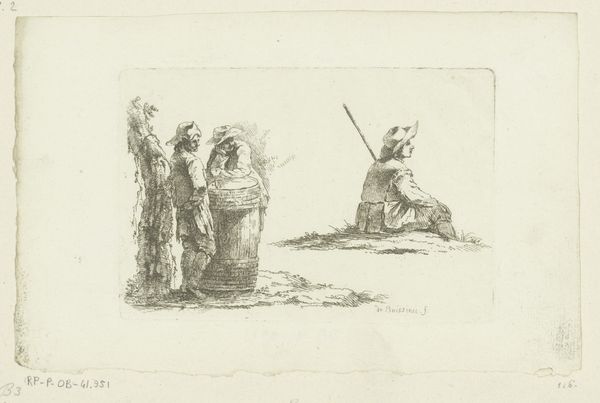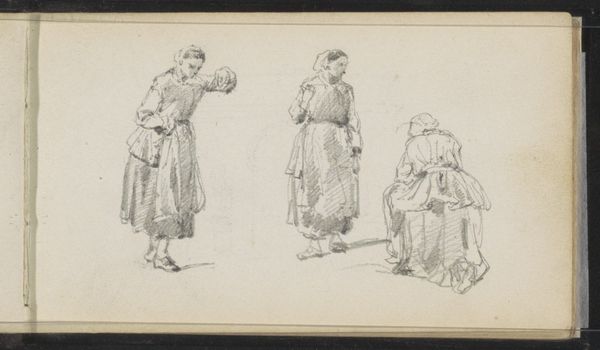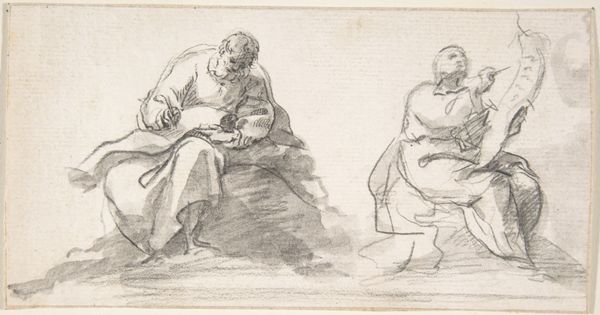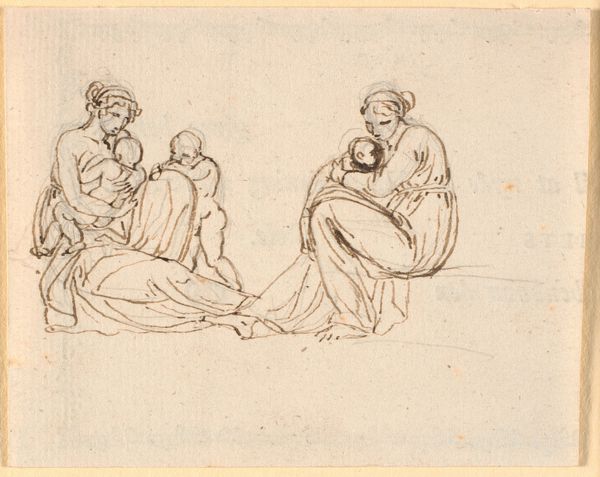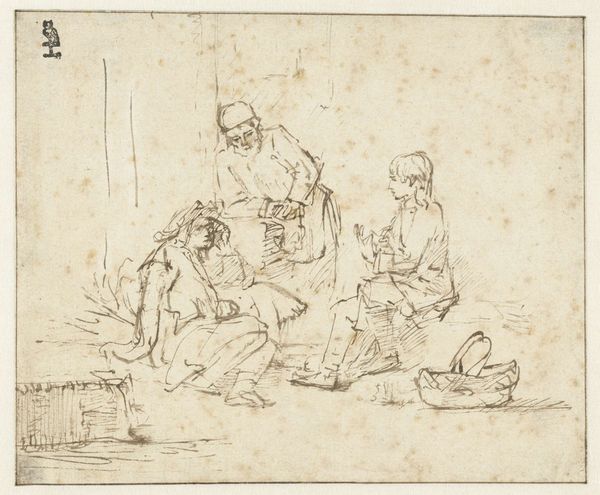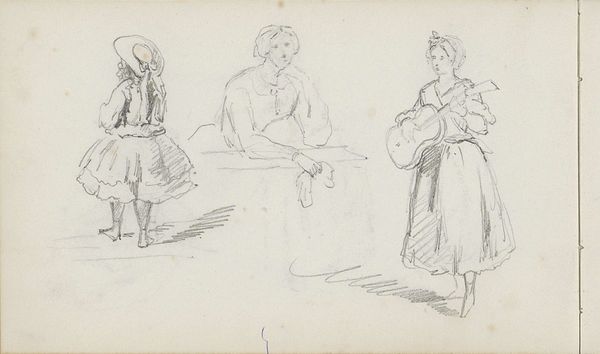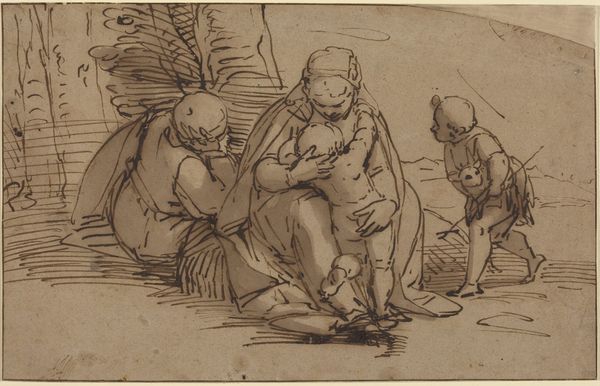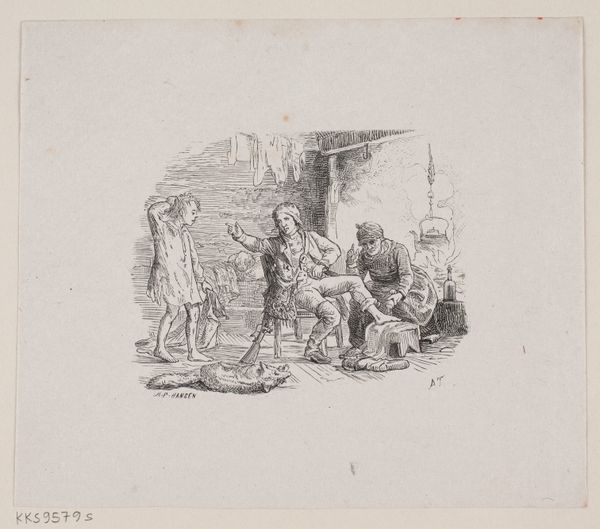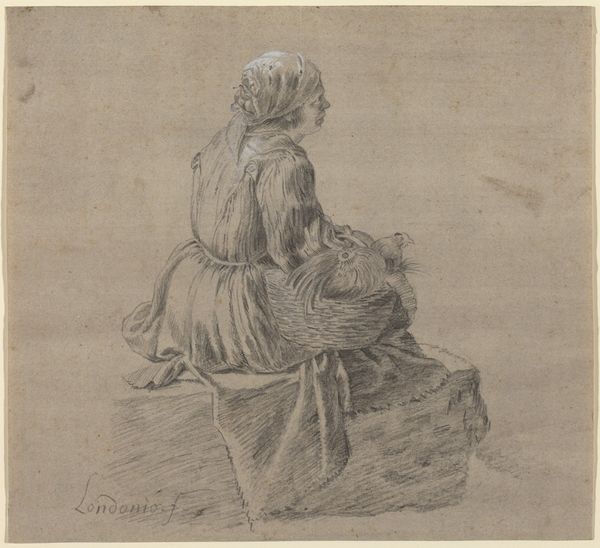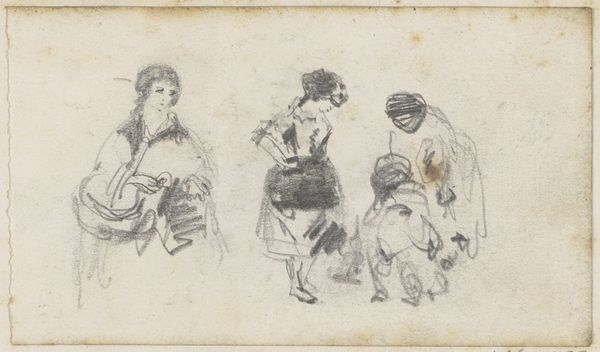
drawing, paper, pencil
#
portrait
#
drawing
#
light pencil work
#
pencil sketch
#
sketch book
#
incomplete sketchy
#
figuration
#
paper
#
personal sketchbook
#
idea generation sketch
#
sketchwork
#
pen-ink sketch
#
pencil
#
sketchbook drawing
#
genre-painting
#
sketchbook art
#
realism
Copyright: Rijks Museum: Open Domain
Editor: This is "Standing and Seated Woman" by Cornelis Springer, made around 1860 to 1866, a pencil drawing on paper. It feels intimate, like a quick glimpse into a private moment. What do you see in this piece that I might be missing? Curator: I'm immediately drawn to the archetypal portrayal of the women, they embody a timeless strength. Notice how Springer captures their figures with such economical lines, it is a fascinating snapshot of female domesticity in that era. Do you observe any symbolism within their poses or attire? Editor: I hadn't thought about that. Their clothing seems pretty simple, practical even. One's carrying a basket. They feel very ordinary to me, I don’t know what it represents. Curator: Precisely. Consider how the seated woman, possibly resting or in contemplation, is presented versus the woman carrying a basket. This opposition reflects the dual aspects of womanhood that were either celebrated or suppressed at the time; domestic duty versus quiet introspection. These are very telling portrayals of everyday virtue and strength. Editor: So, their ordinariness is actually the point? Highlighting everyday women and giving a kind of respect for the duties in daily life? Curator: Absolutely, it reflects a growing artistic trend in the 19th century, finding nobility in the common person. The artist captures the psychological space around them and what womanhood symbolizes for Dutch identity and legacy. This symbolism connects profoundly with cultural memory of domestic tranquility. It echoes deep through our history, doesn’t it? Editor: It really does, now that I think about it. I had never thought a simple sketch could contain so much meaning. Thanks for opening my eyes. Curator: And thank you for bringing fresh eyes to the symbolism inherent in this work. It's a continuous unveiling.
Comments
No comments
Be the first to comment and join the conversation on the ultimate creative platform.
